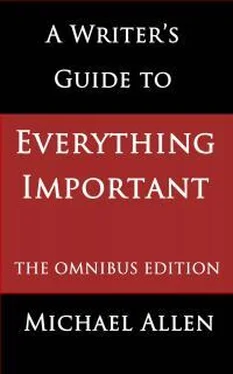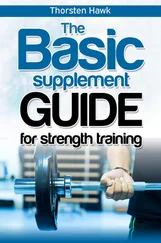Once devised this scheme caught on.
Consider, for instance, the once noble and respected Random House. In my youth, to be published by Random House was a dream seldom accomplished by all but a select few. However, in 2013 RH announced four new digital imprints for various genres: Hydra, Alibi, Loveswept, and Flirt. In order to publicise their innovation, and to attract writers to the scheme, they felt obliged to make public certain aspects of their contracts.
I think it is fair to say that the terms of these contracts were greeted by experienced writers with utter disgust and contempt.
For example, the Science Fiction and Fantasy Writers of America issued a public letter to RH which said, among other uncomplimentary things, ‘Your attempt to shift to the author costs customarily borne by the publisher is, simply, outrageous and egregious…. Hydra intends to act in a predatory manner towards authors, and in particular toward newer authors who may not have the experience to recognize the extent to which your contract is beyond the pale of standard publishing practices.’
I hope I don’t need to say more.
If you are initially attracted to the idea of being published on a digital imprint organised and run by a big-time publisher, do yourself a favour and google widely on the nature of that contract in particular, and similar contracts in general.
The conclusion that you are likely to come to is, in my opinion, that the digital imprint will do nothing for you that you couldn’t do for yourself via Kindle Direct Publishing, or something similar, and the royalty earned on any sales which do result through the big-time publisher will be lower than for a do-it-yourself enterprise.
4.4.4 Yet more cunning plans
Oh. And offer a few other cunning ways to get authors to pay.
Such as offering writers a chance to learn to write.
Once upon a time there was a famous UK publisher known as Faber & Faber – usually abbreviated to the one Faber. Founded in the 1920s, the firm gradually acquired a reputation as the home of literary quality. Since I am a vulgarian with no interest in literary fiction, I personally only used to read the crime fiction which they occasionally published; they went slumming in that area presumably to avoid bankruptcy, because the other stuff certainly didn’t sell.
An early director of Faber was the poet T.S. Eliot. And if you haven’t heard of Eliot, you have almost certainly heard of the famous stage musical Cats . This was based on Eliot’s 1939 book light verse, Old Possum’s Book of Practical Cats. It is said – and I do not doubt it – that the royalties from Cats are the only source of income, in recent years, which has kept Faber afloat.
Recently, however, things must have been getting really tight. To increase income, the company has therefore established the Faber Academy. This occupies the fourth floor of the Faber building and purports to teach writers how to write.
And it works! Allegedly. ‘Faber Academy courses have started careers for bestsellers like SJ Watson and Rachel Joyce,’ says the web site, ‘and helped many more find agents.’
Details of fees are not easy to find on the web site, but the online novel-writing six-month course offers fortnightly sessions, one to one feedback, and peer-review sessions. The cost is £2500.
In early 2014, Random House UK has announced ‘its first online writing course, Creative Writing for Beginners.’ Cost: £499.
4.5 The effect of ecommerce on agents
4.5.1 The toughest job in the business
The impact of the digital revolution on publishers has had similar effects on agents: and the nature of the problem for agents is essentially the same: it’s money.
The money is not flowing in as promptly as it used to, and when it does arrive the payment has shrunk.
I have often said, and if I haven’t said it before in this book I will say it now, that being a literary agent has always been the toughest job in the book business.
For one thing, the job is inevitably demanding on time. Someone has to read the submissions from aspiring writers. And even if you employ a team of interns (more suckers prepared to work for no pay in order to ‘gain experience’), you have absolutely no guarantee that they can tell Stork from butter (or shit from Shinola, if you’re American). So in the end the agent just has to read some stuff herself. Which takes time, if you do the job properly.
Then you may get involved in rewrites with the author. Maybe.
Historically speaking, some of the very best agents have been willing to work closely with their writers to get the work into ideal shape for submission. The best plan has always been to submit a book to the right publisher at a point where not a word needs to be changed.
(Incidentally, the comment above is in danger of ignoring survivorship bias. Yes, it is true that some very successful agents have worked closely with their authors. But what of the agents who conscientiously committed endless time to their clients, but who happened, through no fault of their own, to have some Mafia books ready to submit at precisely the moment when the fashion for godfather books faded? Such agents failed and went out of business, despite their best efforts.)
So, before we proceed to be somewhat critical of agents, in terms of their responses to digital challenges, let us remember that theirs is always a demanding and exhausting calling. You need both physical and emotional resilience. A private income wouldn’t hurt, either.
4.5.2 The specific difficulties of the digital era
As we have seen, publishers who are suffering from digital difficulties tend to (i) reduce the size of advances paid to midlist authors; (ii) try to reduce or eliminate their need to compete with other publishers for the books with obvious commercial potential; (iii) increase their share of the proceeds by varying the terms of in both past contracts and new ones; and (iv) concentrate on celebrity books, or books with some sort of ‘platform’, while ignoring the aspiring nobodies.
All of these manoeuvres impact upon agents’ cash flow, and agents tend to have much smaller reserves than publishers. If things turn bad they are unlikely to be able to survive for five lean years and then bounce back.
Agents are supposed to understand contracts and be in a position to judge whether they are ‘fair’ or not. But, in these more difficult times, they may think twice before they complain about harsher contractual terms. For one thing, writers come and go, but publishers tend to live forever – in one form or another. So, complaining too hard may mean that an agent becomes known as a pain in a sensitive place, and future submissions are ignored, or put at the bottom of the pile.
Furthermore, however well intentioned agents may be, it becomes difficult for them to work with authors whose work is not quite there yet. They can’t afford the time. If they do submit such work to publishers, it may well be turned away. Sterling Lord remarks, in his memoirs, that in recent years, publishers have taken to flatly rejecting books which they might once have been willing to sign up and wait while the polish was applied.
Some experienced writers, while sympathising with the agents’ predicament to some extent, feel that agents have recently become all too pally with the publishers.
For example: In 2012, the Association of Authors’ Representatives wrote an open letter asking all agents and writers to write to the US Department of Justice, saying that they objected to the lawsuit which the DOJ had filed against the major publishers. You will remember that the DOJ was pursuing the top publishers for conspiring to fix the prices of ebooks at an unfairly high level, in a way which was contrary to consumers’ interests (and contrary to antitrust laws).
Читать дальше












